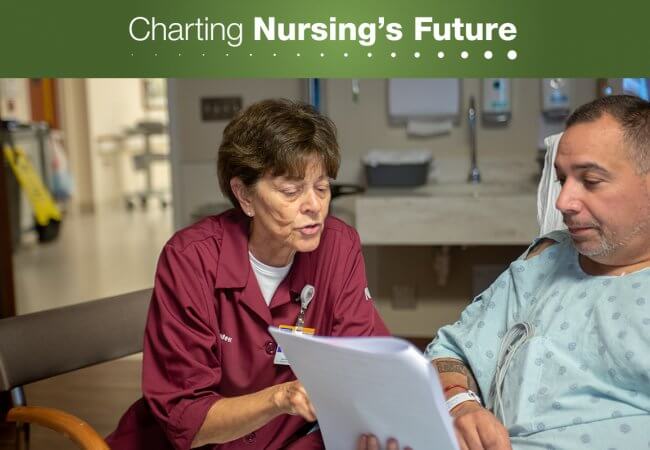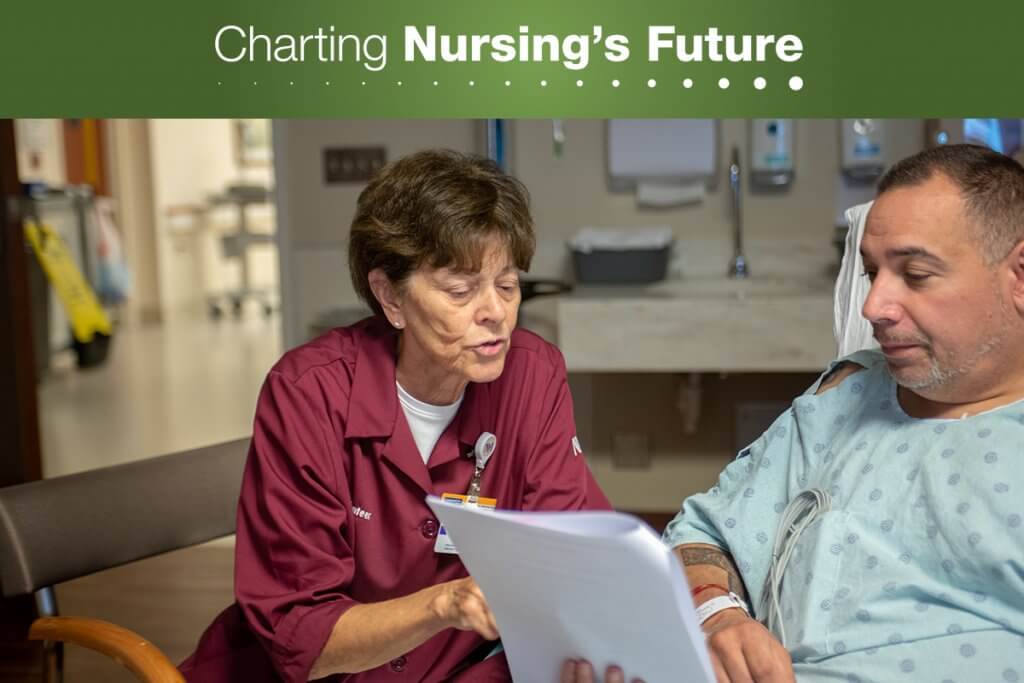
Sep 25, 2018
Retirement Opportunities That Allow Nurses to “Do More”
 When Ellen Elpern, MSN, RN, retired, she was eager to invest more time and energy in her profession. She also wanted to maintain a connection to the medical center where she spent almost 40 years providing inpatient care. But she soon discovered that few volunteer positions are designed for someone with her level of expertise, and that online applications tend to go nowhere. “I was surprised at how difficult it was to give away my time and talent,” she recalls.
When Ellen Elpern, MSN, RN, retired, she was eager to invest more time and energy in her profession. She also wanted to maintain a connection to the medical center where she spent almost 40 years providing inpatient care. But she soon discovered that few volunteer positions are designed for someone with her level of expertise, and that online applications tend to go nowhere. “I was surprised at how difficult it was to give away my time and talent,” she recalls.
When she finally picked up the phone and called another hospital closer to home, she found an entirely different reception. The volunteer department at Chicago’s Northwestern Memorial welcomed her and put her to work administering patient satisfaction surveys. That assignment got the ball rolling, but it wasn’t long before Elpern felt “like I could be doing more.”
Then one day, another volunteer overheard her interacting with a family on an intensive care unit and recruited her for a recently created volunteer assignment: working with patients to explain and complete advance directives, the legal documents that ensure a person’s treatment wishes are carried out if they can no longer communicate. Elpern had finally found a way of contributing that fulfilled both her needs and those of the hospital.
Elpern is one of four retired nurses whose volunteer work is featured in our photo essay, “Encore Performance: Retired Nurses Find Fulfillment Through Volunteering.” Each of these nurses has found rewarding volunteer opportunities that draw on their expertise, and their communities are richer for their contributions.
Researchers project that by the end of this decade, more than 70,000 RNs will be entering retirement each year. Millennials will fill most of the expected vacancies, but it will take years before the younger nurses gain the experience, knowledge, and judgment of the baby boomer nurses they are replacing. Health systems could mitigate this loss of expertise by harnessing the contributions of motivated nurse retirees, but few institutions have structured programs in place to take advantage of this growing volunteer pool.
In a recent article in the American Journal of Nursing, Elpern and her co-author Joanne M. Disch propose the establishment of a retired nurse volunteer corps that would offer retired nurses opportunities commensurate with their talents and interests. “It’s what I wished I had in place when I retired,” Elpern says, “and I don’t think I’m unique. Plenty of people want some flexibility. I have two wonderful grandchildren, and I want to spend time with them—so I’m not looking for a job—but I sure am looking to make a contribution.”
Five years into her time at Northwestern Memorial, no one doubts that Elpern’s contribution has been substantial, and she has recently expanded her volunteer efforts. She’s working with nursing administrators at her former employer, Rush University Medical Center, to develop ways to engage and retain senior nurses. By assisting them with the transition to retirement and creating volunteer opportunities that allow them to “do more” with their talents and abilities, Rush hopes to stave off the coming loss of expertise as its boomer nurses retire.
Read more about Elpern and other retired nurses who are volunteering in their communities.
